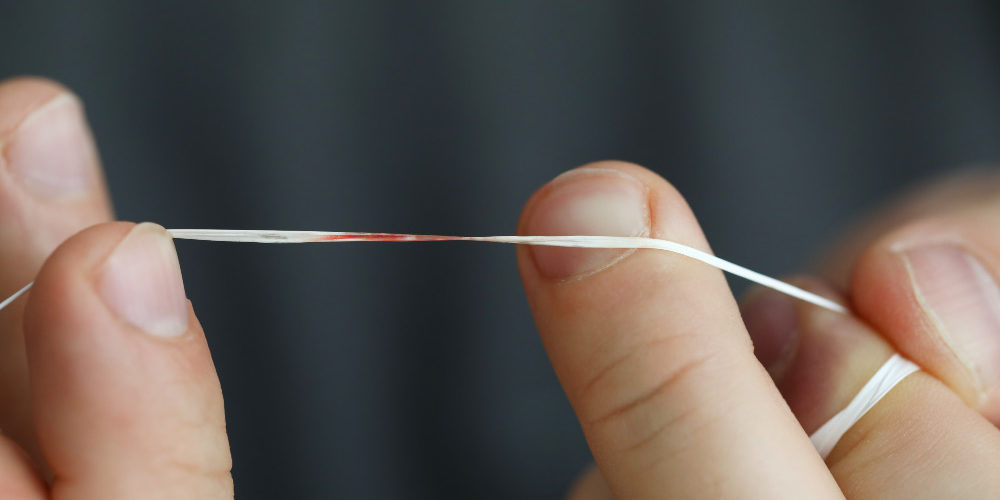Millions of Americans experience bleeding gums. For some the problem is temporary, and for others it is persistent. It is a dangerous misconception to assume that bleeding gums are no big deal. If you commonly see bleeding gums when you brush and floss, It is important that you address this with your dentist.
What Causes Bleeding Gums?
Healthy gums do not bleed. The presence of bleeding means that there is a problem. That problem is inflammation.
Inflammation is the body’s natural defense against an injury or irritation. An inflammatory response causes increased blood flow to the site of injury in order to bring healing cells. The increased blood flow leads to swelling, redness, tenderness, and, particular to the gum tissues, a tendency to bleed very easily.
The primary cause of inflammation in the gums surrounding the teeth is dental plaque. Plaque is the soft, sticky, white buildup that accumulates on the teeth every single day. The specific culprit in dental plaque is disease-causing bacteria. Other components of plaque include food debris and exfoliated tissue cells from the lining of the inside of the mouth.
The bacteria in dental plaque on the teeth produce toxins that penetrate the gum tissue surrounding those teeth, and it is these toxins that are the “injury” causing the body’s inflammatory response.
Why Should I Take Bleeding Gums Seriously?
In general, there are two important reasons to take bleeding gums seriously. First, bleeding gums are an indication of an underlying problem in the gums. Second, that underlying gum problem impacts your overall health. Both the cause and effect of bleeding gums are concerning.
The Underlying Problem of Bleeding Gums
As we explained in the earlier section on the cause of bleeding gums, the underlying problem is a bacterial infection. When left untreated, the superficial bacterial infection that makes your gums bleed spreads deeper underneath the gums into the important supporting structures of the teeth. As the infection spreads deeper within the gums, it destroys the surrounding jawbone and the ligament that connects the teeth with the bone. We call this phenomenon “loss of attachment”.
The good news is that bleeding gums are an early sign of gum disease. This gives you a chance to intervene before much damage occurs. The problem is that many people ignore this early sign of bleeding gums and do not seek dental care until permanent damage has already occurred. By taking bleeding gums seriously and seeking dental care, you give yourself the best chance at early detection and intervention in gum disease.
In dentistry, so many problems are preventable, and our goal is to help you prevent dental diseases like cavities and gum disease. This means you cannot ignore warning signs and wait until something hurts. You should always take bleeding gums seriously because they are a warning sign of progressive gum disease.
The Impact on Overall Health of Bleeding Gums
Maybe you understand perfectly well that bleeding gums indicate gum disease but remain unconcerned about gum disease itself. In this case, we want to explain the reasons you should be concerned about gum disease. Many people are operating under the misconception that the mouth is separate from the rest of the body when it comes to health problems. Scientific research continues to show important links between oral health and the health of our whole bodies.
There are two important things to understand about this link between gum disease and other health problems. First, the link means that people with gum disease are more likely to get these health problems. Second, it means that those who already have these diseases and gum disease will experience worsening of their health problems and have more difficulty in successfully treating them.
The most important links, according to current research, exist between gum disease and 1) diabetes, 2) cardiovascular disease, and 3) Alzheimer’s disease. Patients who suffer from long-term gum disease, especially those who do not receive dental care for this problem, have a higher risk for each of these diseases.
More Questions about Bleeding Gums?
Call now to schedule a consultation with one of our doctors at Rockland Dental Specialists. We can answer any questions you have about bleeding gums, assess your current situation, and treat any dental concerns you have.







